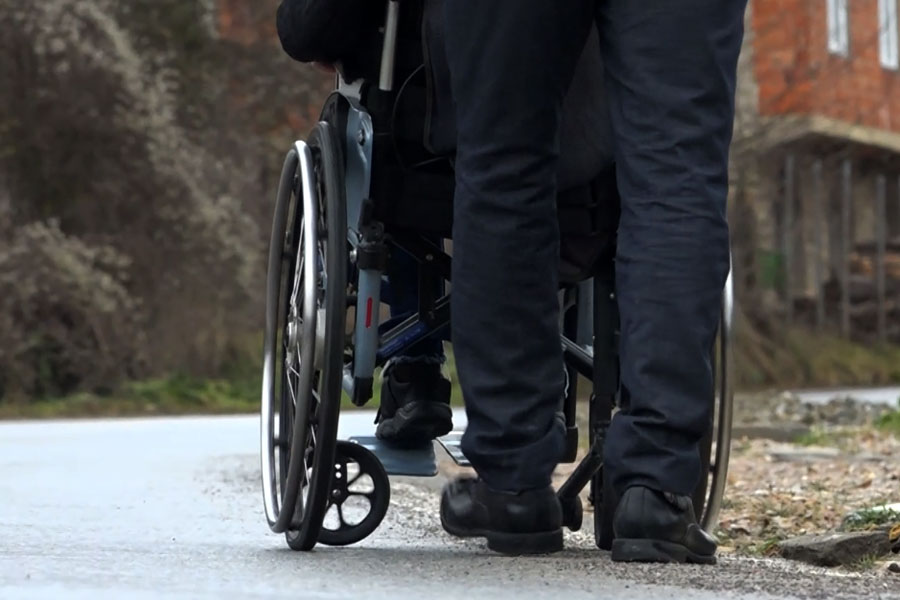“How much I miss going to school. I miss my friends…”
She has always dreamed of a world without limitations. Her childhood wasn’t like the childhood of the other children of her age.
Blerina moves only in a wheelchair, almost always accompanied by her father.
Her story begins with the memories from the village school.
The eighteen-year-old from the village of Grashticë, near Pristina, is facing social challenges and barriers. She never blames others, even though she has heard words that have hurt her deeply.
Movement is a fundamental right of every person in the world. However, due to the lack of wheelchair ramps in schools, Blerina was unable to continue her education after completing her nine-year education.
Not through regular lessons, but recently she has been continuing the 10th grade only through exams.
In primary and lower secondary education in Kosovo, there are over 212,000 students enrolled.
According to data from the Ministry of Education, only around 3,700 children have disabilities.
According to the Constitution of the Republic of Kosovo, primary education is mandatory and free of charge.
The sixth child of the Krasniqi family, who is diagnosed with cerebral palsy, aims to become an actress one day.
She receives a pension from the state, but the therapy recommended by the doctor always exceeds this amount.
The 50-year-old man has knocked on every door for the treatment of his daughter. He has spent a lot, but has never received help from the state.
Neither Resmia isn’t living in better conditions, who is raising her daughter, Leandra, on her own. Since birth, the woman from Prizren had noticed that her child was not developing as children of her age.
Leandra has been diagnosed with cerebral palsy and also suffers from epilepsy. Five years after her birth, she underwent surgery, hoping that everything would improve…
In her efforts to raise her child like others, she suffers the difficulties her 11-year-old daughter faces in every step she takes up to the third floor of the school — without the support of an assistant.
The Ministry of Education has previously stated that several actions have been taken to improve accessibility for children with disabilities in schools. Last year, 15 wheelchair ramps were built, and this year, the construction of 18 more wheelchair ramps is planned.
The inability to access public spaces is considered a serious violation of human rights.
With the support of the European Union Office in Kosovo, the project ‘My Story, My Dignity’ is being implemented, which addresses discrimination and gender-based violence against women and girls with disabilities, as well as single mothers raising children with disabilities.
A large number of cases have been helped so far from different regions of Kosovo.
As part of this project, self-help groups have been created, where women receive legal and psychosocial support.
According to the World Health Organization, in developing countries like Kosovo, 7 to 10 percent of the population has disabilities.
All public and private institutions are obligated by law to have one person with disabilities for every 50 employees.
The Ministry of Finance has not responded to questions regarding the number of people employed from this category, nor how many of them receive a pension from the state.
The law guarantees the benefit of rights and equal opportunities without facing discrimination.
Blerina, Leandra, and many other women and girls with disabilities are living with the hope that one day they will enjoy their basic rights.


